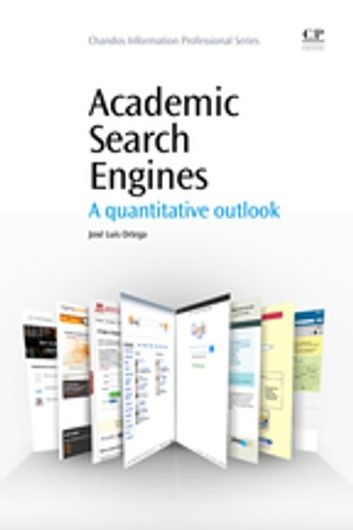| FindBook |
有 1 項符合
Academic Search Engines的圖書 |
 |
Academic Search Engines 作者:Jose Luis Ortega 出版社:Elsevier Science 出版日期:2014-10-02 語言:英文 |
| 圖書館借閱 |
| 國家圖書館 | 全國圖書書目資訊網 | 國立公共資訊圖書館 | 電子書服務平台 | MetaCat 跨館整合查詢 |
| 臺北市立圖書館 | 新北市立圖書館 | 基隆市公共圖書館 | 桃園市立圖書館 | 新竹縣公共圖書館 |
| 苗栗縣立圖書館 | 臺中市立圖書館 | 彰化縣公共圖書館 | 南投縣文化局 | 雲林縣公共圖書館 |
| 嘉義縣圖書館 | 臺南市立圖書館 | 高雄市立圖書館 | 屏東縣公共圖書館 | 宜蘭縣公共圖書館 |
| 花蓮縣文化局 | 臺東縣文化處 |
|
|
圖書介紹 - 資料來源:樂天KOBO 評分:
圖書名稱:Academic Search Engines
Academic Search Engines: intends to run through the current panorama of the academic search engines through a quantitative approach that analyses the reliability and consistence of these services. The objective is to describe the main characteristics of these engines, to highlight their advantages and drawbacks, and to discuss the implications of these new products in the future of scientific communication and their impact on the research measurement and evaluation. In short, Academic Search Engines presents a summary view of the new challenges that the Web set to the scientific activity through the most novel and innovative searching services available on the Web.
- This is the first approach to analyze search engines exclusively addressed to the research community in an integrative handbook. The novelty, expectation and usefulness of many of these services justify their analysis.
- This book is not merely a description of the web functionalities of these services; it is a scientific review of the most outstanding characteristics of each platform, discussing their significance to the scholarly communication and research evaluation.
- This book introduces an original methodology based on a quantitative analysis of the covered data through the extensive use of crawlers and harvesters which allow going in depth into how these engines are working. Beside of this, a detailed descriptive review of their functionalities and a critical discussion about their use for scientific community is displayed.
|











